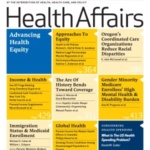Monday, March 5, 2018
This article shares how medical-legal partnerships help treat issues that drive health inequities. The authors identify multiple models for delivering medical-legal partnership services in clinical settings, and examined how health care organizations adapt the intervention to best meet the specific needs of its patients. While the models of delivery vary, the paper's authors also identified eight core elements that define the intervention, and offer recommendations to bring these partnerships to scale....Read More
Thursday, January 18, 2018
A study of an intervention among youth with type 1 diabetes, which included medical-legal partnership counsel as a key element, found that 30 percent of youth accepted legal counsel. Youth enrolled in the program were found to demonstrate significant improvement in their glycemic control after one year of the intervention, as compared to youth not enrolled in the program....Read More
Tuesday, December 5, 2017
Veterans in Connecticut and New York who accessed legal services showed significant improvements in housing, income, and mental health during a two-year study. Veterans who received more medical-legal partnership services showed greater improvements in housing and mental health than those who received fewer services, and those who achieved their predefined legal goals showed greater improvements in housing status and community integration than those who did not....Read More
Friday, December 1, 2017
This article traces the roots of the medical-legal partnership (MLP) approach to health as a way of promoting the use of law to remedy societal and institutional pathologies that lead to individual and population illness and to health inequalities. Given current forces at work - the medical care and public health systems' foctis on social determinants of health, the increased use of value-based medical care payment reforms, and the emerging movement to train the next generation of health care and public health professionals in structural competency - the time is ripe to spread the view that law is an important lens through which we should view health promotion, disease prevention, and overall well-being....Read More

